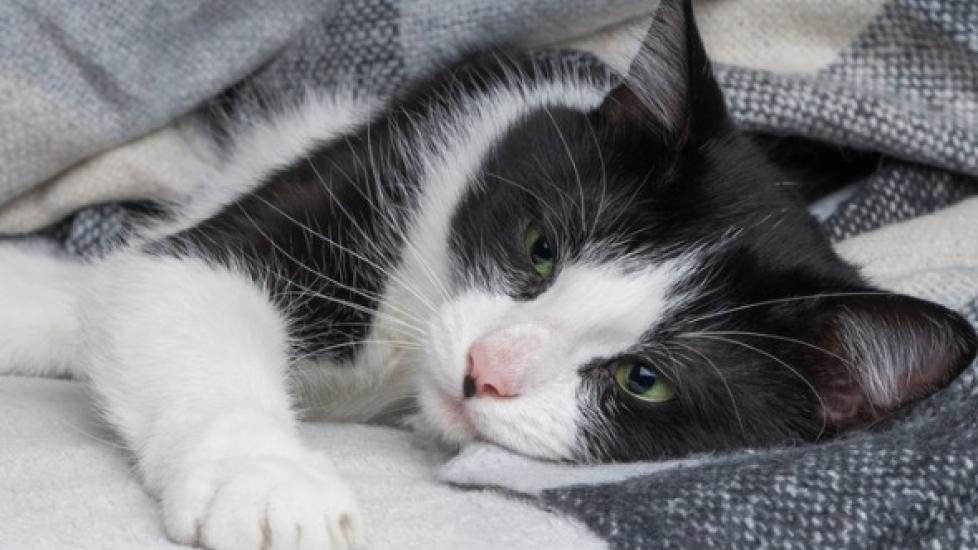 Cats, with their graceful movements and independent natures, are beloved companions in many households. However, as much as we enjoy the company of our feline friends, it’s crucial to be aware of potential health issues they may face. One such issue is coughing, which can indicate a range of underlying problems that require attention from pet owners and veterinarians alike. Understanding what causes cat coughing and how to handle these situations effectively can help ensure your furry friend leads a long, healthy life.
Cats, with their graceful movements and independent natures, are beloved companions in many households. However, as much as we enjoy the company of our feline friends, it’s crucial to be aware of potential health issues they may face. One such issue is coughing, which can indicate a range of underlying problems that require attention from pet owners and veterinarians alike. Understanding what causes cat coughing and how to handle these situations effectively can help ensure your furry friend leads a long, healthy life.
Common Causes of Cat Coughing:
- Upper Respiratory Infections (URI): Viral or bacterial infections affecting the nose, throat, sinuses, and respiratory tract can cause cats to develop symptoms like sneezing, nasal discharge, and coughing. These infections often spread through direct contact with other infected animals or by inhaling contaminated airborne particles.
- Feline Asthma: Similar to human asthma, this condition affects the lower respiratory system of cats, causing inflammation and narrowing of the airways. Environmental triggers like dust, allergens, secondhand smoke, or certain chemicals can induce an asthmatic response in susceptible felines.
- Heartworm Disease: While less common than in dogs due to preventative treatments, heartworm disease can still affect cats. The parasitic worms live in the heart and lungs, disrupting blood flow and potentially leading to lung damage that manifests as coughing.
- Lung Cancer: Although rarer in cats compared to dogs, some breeds have been known to develop lung cancer, which can lead to persistent coughing as one of its primary symptoms. Early detection and treatment are key for managing this serious condition.
- Foreign Body Aspiration: Accidentally swallowing small objects or ingesting hairballs can result in foreign bodies being lodged in the trachea or bronchi, triggering intense bouts of coughing.
- Pneumonia: Bacterial pneumonia is another severe infection that can afflict cats, resulting in fever, lethargy, and, yes, coughing as signs of illness.
- Kidney Failure: Though not directly related to the respiratory system, kidney failure can indirectly cause fluid buildup in the chest cavity, which puts pressure on the lungs and may manifest as coughing.
Steps to Take When Your Cat Is Coughing:
- Monitor Symptoms Closely: Note when your cat first starts coughing, whether there are any changes over time, and if there are any additional symptoms present. This information will be valuable during veterinary visits.
- Contact Your Veterinarian: Schedule an appointment immediately so that your vet can perform a thorough examination and determine the cause of the cough. Prompt action can prevent more serious complications down the line.
- Follow Veterinary Advice: Your veterinarian might recommend diagnostic tests such as X-rays, blood work, urinalysis, or even specialized breathing tests depending on the suspected cause. They may also prescribe medications or suggest lifestyle changes to manage the condition properly.
- Maintain a Clean Environment: Reduce indoor pollutants and allergens that could exacerbate respiratory conditions in both you and your pets. Regularly clean surfaces and consider using HEPA filters to improve air quality.
- Regular Check-Ups: Preventive healthcare measures like regular check-ups and vaccinations can help identify and address health concerns early on before they progress into more serious illnesses.
- Provide Appropriate Diet and Exercise: A balanced diet and moderate exercise contribute to overall well-being, including cardiovascular health, which can reduce the risk of diseases like heartworm and hypertension.
- Educate Yourself: Stay informed about the latest research regarding pet care and health. Reading books, articles, and reputable online resources can give you a deeper understanding of how best to support your cat’s needs.
In conclusion, while cat coughing can be concerning, it’s important to remain calm and take proactive steps toward getting to the root of the problem. By recognizing the various causes and taking appropriate actions, you can provide your feline companion with the best possible chance at a happy, comfortable existence alongside you. Remember, the key lies in vigilance, prompt action, and maintaining open communication with your trusted veterinarian who knows your pet best.
